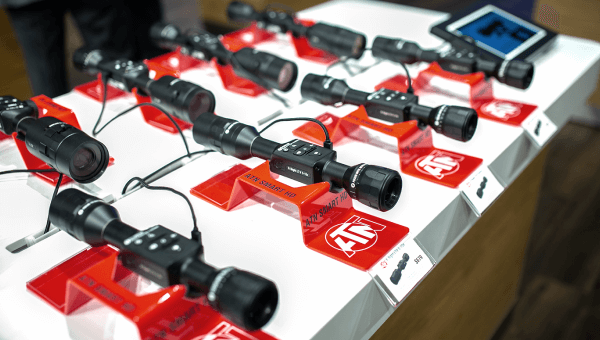How to Hunt Deer: Tips and Techniques for a Successful Hunt
Hunting deer is a blend of skill, patience, and understanding of both the prey and the environment. Whether you are a novice or an experienced hunter, there are always new techniques and tips to learn that can improve your success in the field. This guide provides a comprehensive overview of the essential aspects of deer hunting, from preparation and techniques to equipment and safety.

Understanding Why We Hunt
Ethical and Nutritional Considerations
For many hunters, the primary motivation isn't the trophy, but the food. Hunting provides a sustainable source of meat that is free from the harmful additives often found in commercially raised livestock. Deer, living wild and feeding naturally, offers meat that is healthier and more ethical compared to mass-produced options. Hunting allows individuals to engage in mindful eating, acknowledging the sacrifice of the animal and ensuring it lived a free life.
Techniques for Hunting Deer
Stand-Hunting and Still-Hunting
- Stand-Hunting:
- Tree Stand: Provides a higher vantage point and a wider range of view. Make sure to secure the stand properly and use a safety harness.
- Ground Blind: Offers concealment at ground level. Ideal for those who prefer not to climb or for areas where tree stands are impractical.
- Still-Hunting:
- Stalking: Involves moving quietly and slowly to sneak up on deer. Best done during light rain to mask noise and scent.
- Patience and Silence: Essential for avoiding detection by deer, which have highly sensitive hearing and smell.
Enhancing Your Hunt with the ATN X-Sight 5
When it comes to gear, the ATN X-Sight 5 can be a game-changer for deer hunters. This digital scope offers advanced features like its built-in ballistic calculator and smart rangefinder, helping you make precise shots even in challenging conditions. Its ultra-clear HD display ensures you won’t miss subtle movements, while the recoil-activated video (RAV) feature lets you automatically capture the moment without taking your eyes off the hunt. Whether you're stand-hunting or still-hunting, the X-Sight 5 enhances your ability to stay accurate and focused, giving you an edge when it matters most.
Tips for Effective Stand Placement
- Human Scent: Deer have a highly developed sense of smell. Minimize your scent by considering wind direction and using scent-blocking products. Position your stand downwind from expected deer paths.
- Scent Cone: Visualize your scent as a cone expanding from your body. Position yourself so this cone doesn’t intersect with likely deer trails.
- Safety Precautions: Always use a safety harness when in a tree stand and never climb with a loaded gun.
Equipment and Preparation
The Right Firearm
Selecting the right gun is crucial for a successful hunt. The choice depends on the environment and the type of hunting you plan to do.
Brush Guns
Ideal for dense forest environments, brush guns use rounded bullets that are less likely to be deflected by leaves and branches. Popular choices include:
- .30-30 Winchester: Known for its reliability and availability of ammunition.
- Shotguns with Buckshot or Slugs: Effective in dense woods and populated areas.
Long-Range Rifles
For open fields and longer shots, flat-shooting rifles are preferred. These guns maintain accuracy over long distances. Examples include:
- .280 Remington: Zeroed at 200 yards, providing accuracy for shots up to 300 yards.
- .30-06 and .270 Winchester: Popular choices for their balance of power and range.
Steps to Sight in Your Rifle
- Bore-Sight Your Rifle: Start by having your rifle bore-sighted at a sporting goods store to align the scope roughly with the barrel.
- Set Up at the Range: Use a sturdy bench and shooting rest to stabilize your rifle.
- Adjust the Scope: Fire a shot and adjust the scope based on the impact point. Most scopes adjust in 1/4 MOA increments (1/4 inch at 100 yards).
- Confirm Zero: Ensure your rifle is zeroed at your preferred distance (e.g., 200 yards) to accommodate for bullet drop at various ranges.
- Practice Regularly: Develop muscle memory and confidence by practicing with live rounds and dry firing.
Practical Hunting Tips
Time of Day
- Early Morning and Late Afternoon: Deer are most active during these periods. Arrive at your stand at least 30 minutes before dawn to let the area settle.
- Mid-Day Opportunities: Don’t overlook mid-day hunts, especially during the rut or cold weather, when deer need to move more to stay warm and feed.
Seasonal Considerations
- Early Season: Deer are less wary and more predictable, making it easier to pattern their movements.
- Rut Season: Bucks become less cautious and more active as they chase does, providing opportunities for hunters.
Deer Behavior and Movement
- Understanding Deer Patterns: Use trail cameras to monitor deer activity and identify movement patterns. Look for natural funnels and bedding areas.
- Human Influence: Other hunters moving in and out of the woods can push deer towards your stand. Stay on your stand longer to capitalize on this movement.
Handling Scent
- Minimize Scent: Wash clothes in scentless detergent, use scent-blocking sprays, and store hunting clothes in scent-free bags.
- Wind Direction: Hunt with a crosswind to prevent your scent from reaching deer before you see them.
Conclusion
Hunting deer is a rewarding and complex activity that requires a deep understanding of animal behavior, proficient use of equipment, and meticulous preparation. Incorporating the ATN X-Sight 5 into your hunt can significantly enhance your success. By adopting effective hunting techniques such as stand-hunting and still-hunting, choosing the right firearm, and paying close attention to scent control and environmental conditions, you can significantly increase your chances of a successful hunt. Remember, hunting is not just about the kill but also about the experience and the ethical considerations of harvesting your own meat. Stay safe, practice regularly, and enjoy the time-honored tradition of deer hunting.






